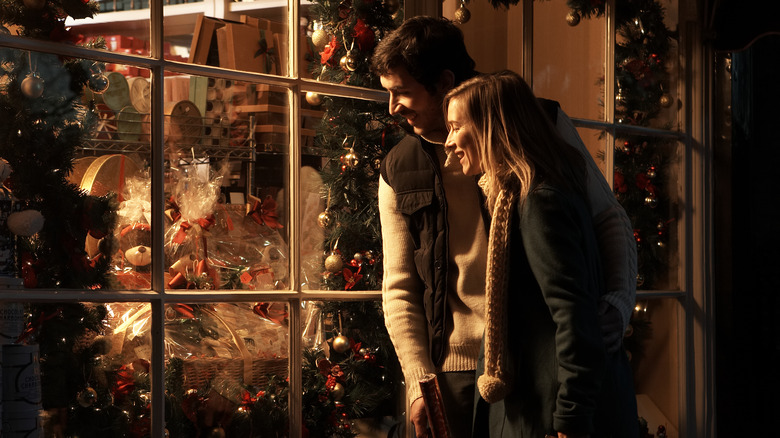Maximize Your Holiday Budget: Ask Yourself This One Question Before Every Purchase
We may receive a commission on purchases made from links.
The holidays can be a time of great financial stress for many. Considering the stark reality that an enormous majority of Americans live paycheck to paycheck (78%, according to a Payroll.Org survey). Whether you're a high earner or a minimum wage employee, managing routine financial obligations can become stressful when added spending demands roll around. Unlike an emergency spending need (that Americans should develop an emergency fund to cover), holiday shopping is something that you can predict far out into the future. You know who you'll be buying presents for and likely have a general sense of the decorations, food, and other goods you'll be purchasing during the holiday season, for instance.
But a lengthy planning phase that includes saving for presents and other staple purchase needs isn't the only thing that people should do to maximize their holiday budget and reduce the financial stress that often accompanies the cheerful Christmas spirit. In a conversation with David Delisle, the author of "The Golden Quest: Your Journey to a Rich Life," MoneyDigest discussed another important mindset to bring into the fold. He introduced the concept of "Awesome Stuff," completely revamping the financial and emotional aspects of holiday budgeting and spending. Here's how this approach can come into play to help you stretch your budget and experience more joy this holiday season.
Gift giving is about imparting joy
David Delisle's book is all about discovering what matters the most to you personally and then acting in ways that advance that thing, goal, or experience. "Start with a simple question," he says. "Is this my Awesome Stuff?" As consumers, we spend money on all kinds of things throughout the year. Some of these are essential components of a healthy budget, but other purchases aren't made in pursuit of anything in particular, or may be frivolous add-ons that don't actually improve our lives in any meaningful way. You might even be wasting money on some totally pointless expenses. "The holidays," in particular, he notes, "often tempt us to buy for the sake of buying, but pausing to reflect can make all the difference."
He suggests taking a step back and pausing to contemplate this one particular question. Delisle notes that this way of thinking will help you "discover what's really important to you." Characterizing the most important things in your life as your "Awesome Stuff" will help you home in on purchases that will make the biggest, most joyful impact in your life and the lives of your loved ones.
The concept of discovering your 'Awesome Stuff' is focused on empowering intentionality
In recounting one particular story of a family that discussed their priorities together, David Delisle highlighted the heart of this manner of thinking. The children wanted a puppy, labeling that their "Awesome Stuff" right away. But when they learned of their mother's dream of returning to school to further her education, the group coalesced, quickly and genuinely, around that as their combined "Awesome Stuff." The children "felt empowered, joyful, and excited – all the emotions we hope for when we make meaningful choices. This story highlights the incredibly clarity that comes from pausing to ask, 'Is this my Awesome Stuff?'"
"This philosophy," he notes, "is about spending intentionally on what brings the most lasting joy. For anyone looking to try it, start simple. Before every purchase pause and ask yourself, 'Is this the Awesome Stuff?' Just try it for seven days, and you'll be surprised how quickly your spending shifts towards more joy." This is a new mindset surrounding money and prioritization, but it's "a shift anyone can start making today" to generate lasting impact on their lifestyle. Perhaps the most rewarding part is that when you think in terms of core joy-creating priorities, your point of focus will continually evolve, becoming more and more poignant with each new time you ask yourself this question.


